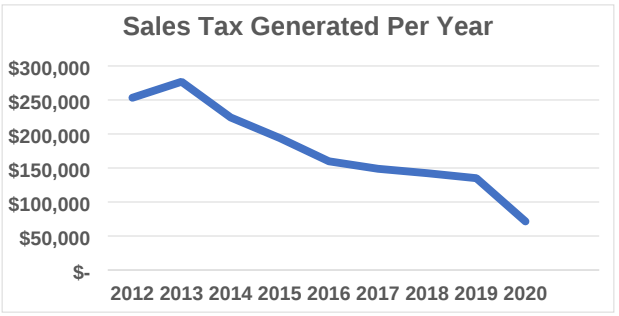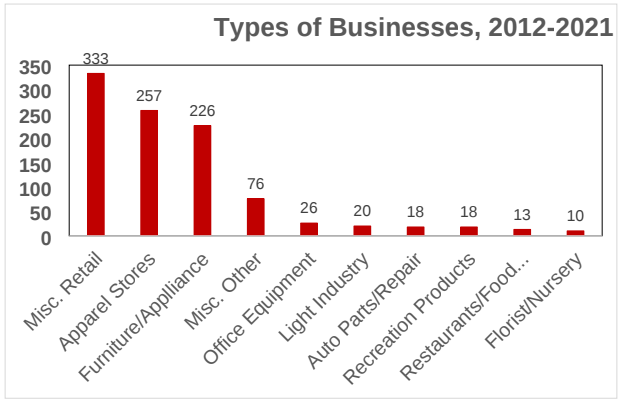Newly obtained data shows how much San Jose’s historic flea market has contributed annually to city coffers and how it has faltered over time.
Emails withheld by the city and released to San José Spotlight after a judge’s ruling show the financial decline of the San Jose Berryessa Flea Market, which has seen a roughly 50% drop in sales tax generation over the last several years.
At the market’s peak in 2013 vendors generated about $277,000 in sales tax revenue for San Jose, from roughly $28 million in sales according to city documents. By 2019—the last pre-pandemic year—flea market vendors generated less than half that tax revenue, $135,000, from $13.5 million in sales. Once COVID-19 hit in 2020, market tax revenues dropped even further to $71,429.
City documents note that actual sales would be higher because sales tax isn’t charged for everything sold at the flea market.
Nathan Donato-Weinstein, the city’s downtown manager, said there are a multitude of reasons for the declining numbers that make it difficult to glimpse the full picture. One reason is there are certain goods and services that are sales tax-exempt, such as fresh produce.
“The reality is we don’t have all of that (exact information),” Donato-Weinstein told San José Spotlight. “But what we do have access to shows us that the market remains kind of a vibrant and resilient place, despite all the challenges.”
The overall number of flea market vendors also shrunk to 430 in 2021 compared to 900 that had been there a decade earlier. The amount of businesses declined by about 46% between 2013 to 2019. The flea market peaked with about 1,250 vendors in the early 1990s. Donato-Weinstein attributes the decline in vendors to losing physical market space, and that some are on short-term agreements that can cause the number of businesses to fluctuate.


Erik Schoennauer, a land use consultant who represents the flea market owners, said while the owners have no say or knowledge over sales tax generation of individual businesses, the industry has shrunk over time because it has faced competition from online and big box retailers and is vulnerable to weather and economic conditions.
“The flea market business is variable,” Schoennauer told San José Spotlight.
The findings come a month after property owners requested vendors pay an additional 5.5% per location. Vendors learned about the rate hike days after the first meeting of the Berryessa Flea Market Advisory Group, formed to help transition vendors through a downsizing that will shrink the market from more than 60 acres to roughly five acres.
Roberto Gonzalez, one of 11 advisory group members and president of the Berryessa Flea Market Vendors Association, said the sales tax numbers reflect economic conditions and underinvestment from ownership and management into the market. He said development and displacement are pushing vendors out, which will subsequently cause them to leave San Jose if they cannot afford to live and work here.
“(We need to focus on) factors that put pressure on our small businesses here in San Jose,” Gonzalez told San José Spotlight. “(These factors are) just gentrifying our city and that’s what people should care about.”


Most of the market will be replaced by the Berryessa BART Urban Village project, approved by the San Jose City Council in June 2021. The redevelopment will encompass 3.4 million square feet of residential and commercial space, with up to 3,450 homes, a 1.4-acre public park and parking structures.
The Bumb family, who owns the land where the flea market operates, must give a one-year notice to vendors prior to closing the market for redevelopment. Donato-Weinstein said while there is no official closure date, there is a commitment to not give notice before Jan. 1, 2024.
Gonzalez said the vendor association’s main priority is to find a place to relocate all the vendors and have them run the location themselves. He said the city’s financial data shows the need to protect vendors from losing their businesses.
“What’s more important (is) just making sure we’re setting up our local businesses for success and letting them be in the driver’s seat of their future,” Gonzalez said.
Contact Julia Forrest at [email protected] or follow @juliaforrest35 on Twitter.



Leave a Reply
You must be logged in to post a comment.